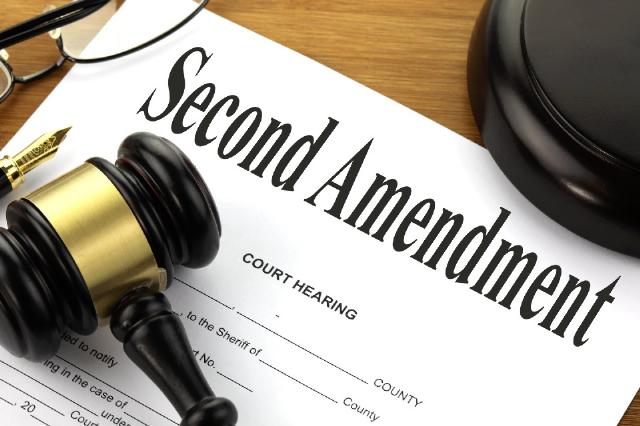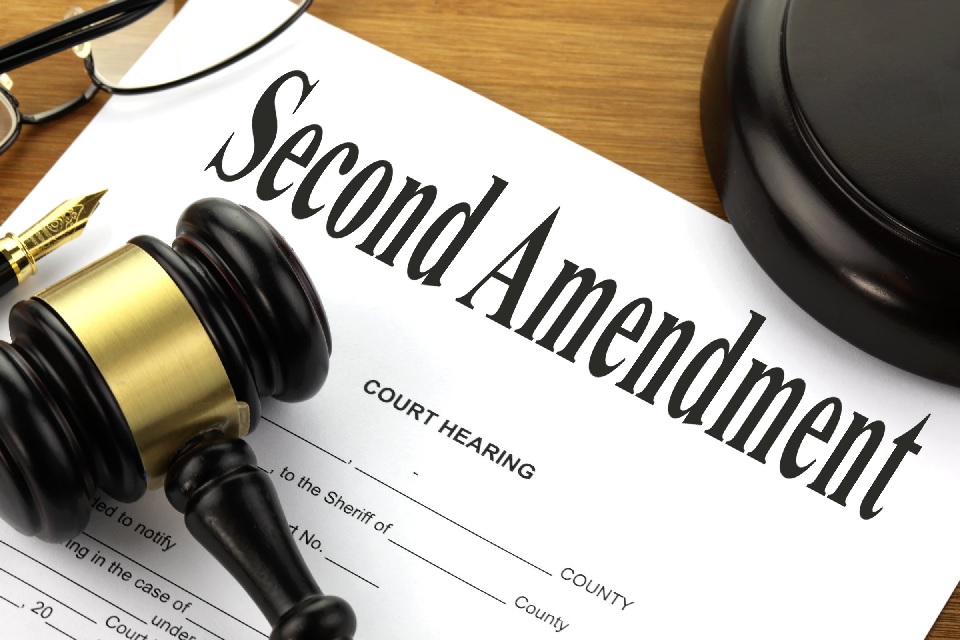

Pix4Free.org
In Massachusetts, a legal battle is unfolding that should resonate with every conservative who values the sanctity of the Second Amendment.In Massachusetts, a legal battle is unfolding that should resonate with every conservative who values the sanctity of the Second Amendment. Escher v. Mason isn’t just about firearms; it’s a litmus test for how we view adulthood, responsibility, and constitutional rights in contemporary America.
The Massachusetts law in question, House Bill 4885, strips legal adults aged 18 to 20 of their right to purchase, possess, or carry semiautomatic firearms and handguns. This isn’t merely overreach; it’s a direct assault on the clear text of the Second Amendment, which does not discriminate by age among “the people.” If we are to take our Constitution seriously, we must defend the rights of all citizens, not just those deemed “mature enough” by the state’s paternalistic gaze.
At the heart of this legal challenge lies a fundamental conservative principle: the inviolability of individual rights. The Founders did not carve exceptions into the Second Amendment for age. They understood that freedom and responsibility go hand in hand, which is why 18-year-olds have been historically recognized as adults — capable of voting, joining the military, and, yes, bearing arms. The Militia Act of 1792, enacted shortly after the ratification of the Second Amendment, explicitly included 18-year-olds in the national defense, expecting them to be armed like their elders.
This historical precedent is not just a footnote but the bedrock upon which the plaintiffs in Escher v. Mason stand. They argue that there is no traditional basis for denying these rights to young adults. The Supreme Court’s decisions in Heller and Bruen have made it abundantly clear that firearms “in common use” are constitutionally protected. Semiautomatic firearms and handguns are the dominant tools of self-defense in modern America. To deny these to a segment of the adult population is not only anachronistic but egregiously unconstitutional.
<img alt captext="Pix4Free.org” class=”post-image-right” src=”https://conservativenewsbriefing.com/wp-content/uploads/2025/02/massachusetts-vs-the-second-amendment.jpg” width=”450″>Yet, the counterarguments often pivot to public safety, suggesting that younger adults are more prone to misuse firearms. This argument, while ostensibly rooted in concern, is flawed. If we truly care about public safety, why not focus on education, training, and accountability rather than blanket prohibitions that disregard personal liberty? Conservatives must advocate for a society where individuals are educated about their rights and responsibilities, not infantilized by the state.
Moreover, this case offers an opportunity to challenge the creeping expansion of government control over personal freedoms. If the state can arbitrarily decide who among adults is “worthy” of Second Amendment rights, what prevents it from making similar judgments about First Amendment rights? The age-based restriction here is a microcosm of a broader issue: the government’s growing comfort in deciding what freedoms we may enjoy.
The implications of Escher v. Mason extend beyond Massachusetts. A victory for the plaintiffs would send a powerful message across the nation: the Second Amendment is not a privilege to be doled out based on one’s age but a right inherent to all law-abiding citizens. This case could set a precedent, reminding legislators that when they infringe on constitutional rights, they invite judicial scrutiny. It’s a necessary check against a state that has shown, time and again, a propensity to expand its reach under the guise of “safety.”
Furthermore, this lawsuit challenges us to reconsider how we view young adults in America. Are they citizens with full rights or wards of the state? The conservative ethos champions personal responsibility, self-reliance, and the maturation of individuals through the exercise of their freedoms. By denying these young men and women the right to bear arms, we’re not just limiting their liberties; we’re stunting their growth into fully responsible members of society.
In an era where conservative values are often under siege, Escher v. Mason provides a battleground to reaffirm what it means to be American. It’s about more than just guns; it’s about the ethos of freedom, the respect for constitutional limits on government power, and the acknowledgment that rights do not age out when one becomes 18.
This case isn’t merely about overturning a law; it’s about upholding the principles upon which our nation was founded. It’s about ensuring that the next generation inherits not just a set of freedoms but a deep understanding of their significance.
A decision in favor of the plaintiffs would not only restore the rights of young adults in Massachusetts but would also reaffirm that your rights are not subject to the whims of age, politics, or fear. They are your birthright, and they must be defended with vigor and intelligence.
Escher v. Mason is not just a legal case; it’s a defining moment for conservative values in our time. It’s a chance to prove that we stand for something greater than immediate safety concerns — we stand for the enduring principles of freedom, responsibility, and the unassailable nature of our constitutional rights.
Image: Pix4Free.org






